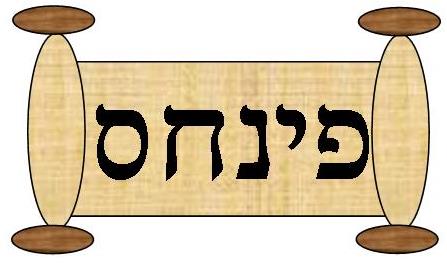At the very end of last weeks parshah, we read that 24,000 Israelites perished in a plague which was the result of a scheme of Bilaam. Unable to harm B’nai Yisrael through a curse, he had the nation of Moav send their daughters to seduce the men of Israel. The latter were joined by the Midianite women.
This week we are told that Pinchas acted courageously and zealously to stop the immorality that was going on around him. He caused the plague to stop, and was rewarded with “Kehuna”, the priesthood.
In Chapter 25, verse 17, Hashem commands Moses TZAROR ET HA-MIDIANEEM, VI-HEEKAITAM OTAM “Harass the Midianites, and kill them”, to avenge what they did to you.
The obvious question is, why have the Midianites been singled out. Was not Moav also responsible?
Rashi explains that Moav sincerely feared B’nai Yisrael, who would be travelling through their land. Midian, on the other hand joined in a battle which was not theirs to fight. They did so out of pure hatred of Israel.
We read next week in Chapter 31, verse 6, that Moses sent Pinchas to do battle with Midian. Why did he use a “Shaliach”, a messenger to do his battle?
Tosafos explains, that we should remember that after Moses killed the Egyptian Taskmaster, he fled to Midian, and was helped by the people. It would, therefore be wrong for him to lift a hand against a nation that helped him. It was clear to Moses that the way to fulfill the command of Hashem was to have Midian avenged through someone else. Pinchas began the miztvah of defeating Midian, and Moses summoned him to complete the task.
At the beginning of Chapter 27, we read of the daughters of Tzelophchad, who appealed to Moses that they receive their deceased father’s inheritance in the Land of Israel. Their father, after all, was not amongst the insurgents who rebelled against Moses during Korach’s rebellion. Moses consulted Hashem
and was told that they had a valid argument, and that land should be allotted to them.
A few sentences later, Moses asks Hashem to appoint a person to replace him, so that B’nai Yisrael should not be “as sheep without a shepherd”.
Rashi explains the reason why this request immediately follows the episode of Bnot Zelopchad. Moses felt that if the daughters were entitled to inherit the land, were not his own children entitled to be handed the leadership of the people? Rabbi Mordechai of Chernobel explains that Moses was concerned that the very sin that prohibited him entry into the land of Israel would prevent his children a chance at inheriting leadership. When he was told that Zelophchads’ daughters would not suffer from any misdeeds, he realized that his sin had nothing to do with his children. Hashem simply wished that Joshua, Moses own disciple assume the leadership, and lead the nation into the land of Israel.
The parshah ends on a rather unique note. Chapter 29 contains 39 sentences, all of which deal with sacrifices. Nachmanadies explains why this chapter is different. Previously, Moses communicated the instructions exclusively to Aaron and his sons, and here, the detailed instructions are being addressed to all of the Children of Israel.
Prepared by Devorah Abenhaim







